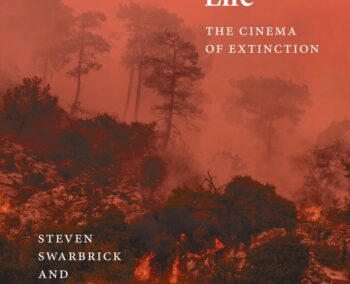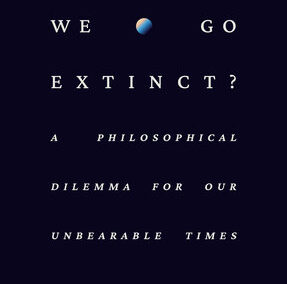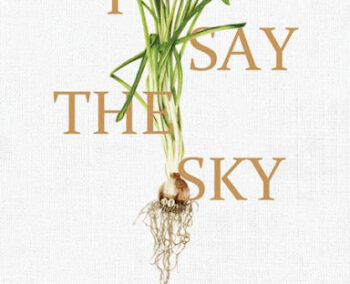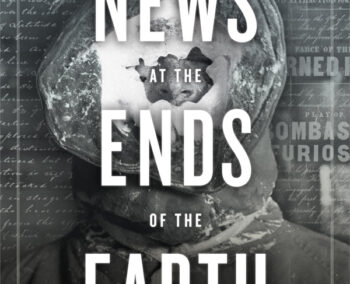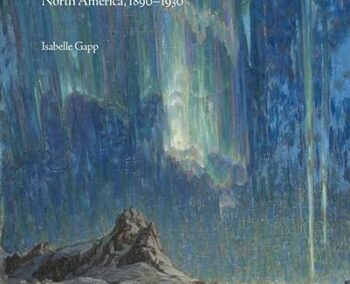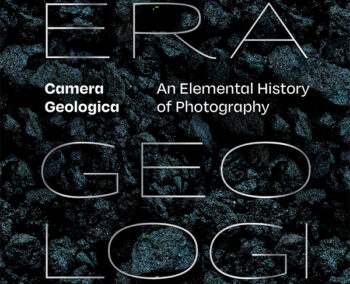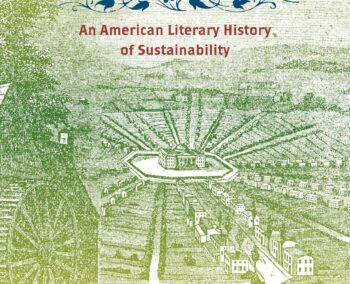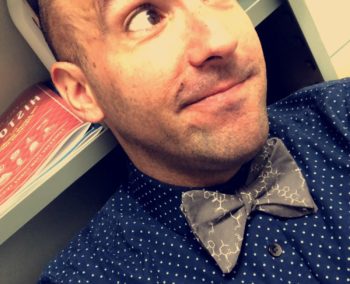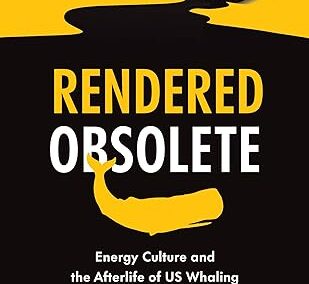Frameworks of Extinction and Negation in Cinema: A conversation with Jean-Thomas Tremblay and Steven Swarbrick
In this second episode of our ongoing extinction series, we sit down with Jean-Thomas Tremblay and Steven Swarbrick to discuss their thought-provoking co-written manuscript, Negative Life: The Cinema of Extinction. Our conversation with them touches not only on the concrete topics of extinction and cinema, but also explores the theoretical potential of negations and contradictions as frameworks for understanding the relationship (or not) between humans and the more-than-human world.
Listen on Podbean Listen on Apple Podcasts Listen on SpotifyFor more from Jean-Thomas and Steven:
https://jeanthomastremblay.carrd.co/
https://www.stevenswarbrick.com/
Episode recorded September 26, 2024. CC BY-NC-ND ...
Should Humans Go Extinct? Asking the Big Question with Todd May
In this first episode of our extinction series, we met with Todd May to discuss his new book Should We Go Extinct? A Philosophical Dilemma for Our Times. This massive question is accessibly analyzed yet Todd also brings in issues underdiscussed in extinction discourse: Who is the inexact “we” behind the question, how do different humans contribute to ecological crisis and therefore human and nonhuman extinction, and what is the role of art in deciding whether humanity’s existence should continue? Instead of concluding on ...
Finding the “Symphony Inside You”: Nadia Colburn’s I Say The Sky Poetry Collection
In this episode, we met with Nadia Colburn to discuss her new poetry collection I Say the Sky. Deeply engaged with the ecological collapse happening around us while also reinvesting in our own existence, her poems range from the simplicity in appreciating the beauty of an onion to reassessing childhood trauma. We also talk through her multi-hyphenate pursuits and the continual search for the “symphony inside you”.
Episode recorded July 22, 2024. CC BY-NC-ND 4.0
Listen on Podbean Listen on Apple Podcasts Listen on SpotifyFor more on Nadia ...
Polar Newspapers and Textual Production in Extreme Environments: Polar Series Finale
In our final episode of our polar environmental humanities series, we have Penn State English professor Hester Blum on to discuss her environmental humanities research on polar ecomedia. Dr. Blum discusses the ephemeral texts and productions aboard Arctic and Antarctic voyages including newspapers. Newspapers on polar voyages? Yes, you heard that right. These texts have contemporary and global lessons to teach in that their production took place while in extreme environments.
Episode recorded May 22, 2024. CC BY-NC-ND 4.0
Listen on Podbean Listen on Apple Podcasts Listen ...(Mis)Conceptions of Antarctica with Dr. Leane
In the second episode of our polar environmental humanities series, we jump from the landscape paintings of the circumpolar north to the southern continent of Antarctica and speak with Dr. Elizabeth Leane at the University of Tasmania. As a Professor of Antarctic Studies, we discuss her work on perceptions of Antarctica historically and also sensorially. From pandemic misconceptions of cleanliness and silence on the continent to science fiction and Antarctic tourism, Leane walks us through the complex histories of the South Pole. We ...
Landscape Paintings of the Circumpolar North: Polar Environmental Humanities Series Episode 1
This is the first episode in our polar environmental humanities series, and our guest is Dr. Isabelle Gapp from the University of Aberdeen! We met to discuss her new book, A Circumpolar Landscape, and the fascinating comparisons between Scandinavian and Canadian landscape painting beyond national borders. We discuss the way the paintings can often exhibit masculine performativity in their erasures and how the painters are nostalgically reminiscing about a landscape changing in front of their eyes from colonial environmental degradation, making ...
Making Photography Material: Siobhan Angus and The Elemental History of Photography
Our conversation with Professor Angus discusses her brand-new book Camera Geologica: An Elemental History of Photography. As the title suggests, Angus connects photography with the materials that make it possible: bitumen, silver, platinum, iron, uranium, and rare earth elements. Each has been used at various points in photography’s history to physically produce an image, and Siobhan tells us how photography doesn’t exist without the mine and extraction. If, in Rob Nixon’s words, capitalism “extract[s] in order to abstract”, then Camera Geologica is undermining this abstraction by enmeshing ...
Agrotopias: Abby Goode and the Imagined Elsewheres of American Sustainability Rhetoric
Our conversation with Professor Goode explores her recent book Agrotopias: An American Literary History of Sustainability. Two recent phrases form the impetus of her book: “We Can’t Solve the Climate Crisis Unless Black Lives Matter” and “Climate Change Is also a Racial Justice Problem”. Goode traces these back to the enigmatic Thomas Jefferson to illuminate and enmesh the supposedly protoecological American past with its racist and eugenic histories by analyzing agrotopias. She defines agrotopias as “seemingly ideal worlds of agrarian stability and productive labor” ...
Farewelcome
This episode is a goodbye and a hello. Brandon Galm, the creator of EcoCast in 2020 and co-host since its inception, is now stepping away from the podcast to make more time for his new roles at Cloud County Community College in North Central Kansas. We say hello to Alex Tischer, a recent graduate from Wright State in English who is now applying to English Ph.D. programs. Brandon and Alex are on either side of the Ph.D. process, and this episode discusses the ...
This Episode is a Whale Oiled Machine: A Conversation with Jamie L. Jones and the History of Whaling
Many apologies for the whale pun in the title, but Brandon can never resist. This month he and Lindsay chat with Jamie L. Jones, author of Rendered Obsolete: Energy Culture and the Afterlife of US Whaling. Jamie is an Assistant Professor in the Department of English at the University of Illinois at Urbana-Champaign. We discuss the fascinating history of whaling in the United States, ranging from the environmentally destructive to the culturally traditional. Moby Dick may or may not be discussed; you’ll have ...

